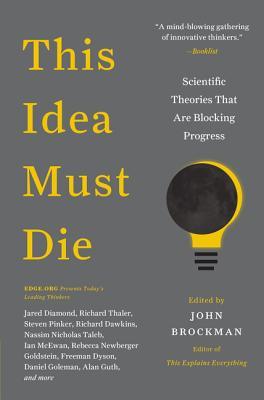Simon Baron-Cohen: Radical Behaviorism
The central idea of Radical Behaviorism—that all behavior can be explained as the result of learned associations between a stimulus and a response, reinforced or extinguished through reward and/or punishment—stems from the early 20th century psychologists B.F. Skinner (at Harvard) and John B. Watson (at John Hopkins). Radical Behaviorism came under public attack when Skinner's book Verbal Behavior (published in 1957) received a critical review by cognitivist-linguist Noam Chomsky in 1959 in the journal Language. One of Chomsky's scientific arguments was that no amount of exposure to language, and no amount of reward and reinforcement, was going to lead a dog to talk or understand language; whereas for a human infant, despite all the noise in different environments, language learning universally unfolds. This implies there is more to behavior than just learned associations. There are evolved neurocognitive mechanisms.
Notes:
Folksonomies: nature instinct nature vs nurture nurture
Taxonomies:
/health and fitness/disorders (0.578438)
/art and entertainment/books and literature (0.199841)
/science/medicine/psychology and psychiatry (0.197555)
Keywords:
Radical Behaviorism (0.921600 (negative:-0.211935)), cognitivist-linguist Noam Chomsky (0.801724 (neutral:0.000000)), 20th century psychologists (0.787582 (neutral:0.000000)), John B. Watson (0.771655 (neutral:0.000000)), Radical Behaviorism—that (0.669518 (neutral:0.000000)), Simon Baron-Cohen (0.649009 (neutral:0.000000)), neurocognitive mechanisms (0.618358 (neutral:0.000000)), central idea (0.613754 (neutral:0.000000)), John Hopkins (0.601368 (neutral:0.000000)), Verbal Behavior (0.592523 (negative:-0.211935)), public attack (0.590752 (negative:-0.211935)), scientific arguments (0.586935 (negative:-0.369477)), critical review (0.584471 (neutral:0.000000)), human infant (0.582559 (neutral:0.000000)), journal Language (0.577309 (neutral:0.000000)), different environments (0.573208 (negative:-0.302844)), reward (0.515957 (negative:-0.323778)), Skinner (0.515786 (negative:-0.211935)), stimulus (0.463394 (neutral:0.000000)), associations (0.462553 (negative:-0.361072)), result (0.441691 (neutral:0.000000)), Harvard (0.437298 (neutral:0.000000)), exposure (0.435613 (negative:-0.369477)), reinforcement (0.435453 (negative:-0.323778)), response (0.434209 (neutral:0.000000)), punishment—stems (0.434024 (neutral:0.000000)), B.F. (0.433861 (neutral:0.000000))
Entities:
Noam Chomsky:Person (0.851948 (neutral:0.000000)), B.F. Skinner:Person (0.718752 (negative:-0.369477)), Simon Baron-Cohen:Person (0.597795 (neutral:0.000000)), John B. Watson:Person (0.506868 (neutral:0.000000)), John Hopkins:Person (0.446196 (neutral:0.000000)), Harvard:Organization (0.434919 (negative:-0.211935))
Concepts:
Noam Chomsky (0.960586): dbpedia | freebase | yago | musicBrainz
Behaviorism (0.938161): dbpedia | freebase | opencyc
Psychology (0.915586): dbpedia | freebase | opencyc
B. F. Skinner (0.843888): dbpedia | freebase | opencyc | yago
Cognitive science (0.704458): dbpedia | freebase | opencyc
Reinforcement (0.590124): dbpedia | freebase
Radical behaviorism (0.583019): dbpedia | freebase
Experimental analysis of behavior (0.551401): dbpedia | freebase





